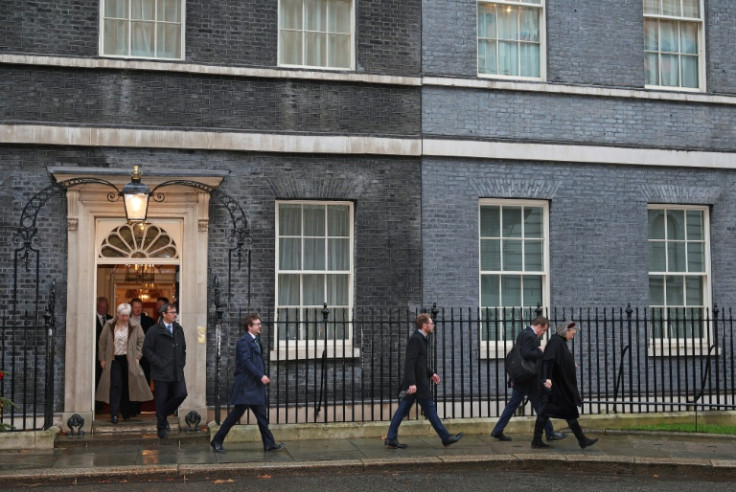UK PM Sunak Faces Leadership Test Over Rwanda Plan

UK Prime Minister Rishi Sunak on Tuesday seeks to avoid a humiliating defeat for his latest plans to send migrants to Rwanda that have split his ruling Conservative party.
The Safety of Rwanda (Asylum and Immigration) Bill is Sunak's answer to a unanimous Supreme Court ruling last month that deporting asylum seekers to Rwanda was illegal in international law.
It aims to legislate to address the court's concerns, as part of a government bid to cut record levels of regular and irregular immigration that is likely to be a key issue at next year's election.
But by seeking to declare Rwanda safe -- despite concerns from human rights monitors -- and removing legal challenges to deportation orders, he has triggered deep factional Tory in-fighting not seen since wrangling over what form Brexit should take.
Hardline right-wingers say the proposals are not tough enough, while more liberal Tories are concerned it could see the UK break international law if the proposals are amended down the line.
A parliamentary debate will start from about 1230 GMT, with a vote expected at 1900 GMT, with all eyes on votes against and abstentions, in what is being seen as a key test of Sunak's leadership.
Defeat would not only be the first at such an early stage of the parliamentary process since 1986 but also a blow to his authority, just over a year since he became Tory leader.
Sunak should call a general election if he loses the vote, opposition Labour leader Keir Starmer said in a speech on Tuesday, but added: "It'll go through tonight, I don't doubt."
Sunak, who is well behind opposition Labour in the polls, has made controlling immigration one of his key policies.
In a bid to appease opponents Tuesday he invited potential rebels for breakfast at Downing Street to get them to back the bill -- or risk it falling at the first hurdle.
"Take back control" was a mantra for Brexit supporters like Sunak during the 2016 referendum.
But Tory governments have found the reality of policing UK borders since leaving the European Union more problematic.
The UK-Rwanda deportation plan was first announced by Sunak's successor Boris Johnson last year as a way of dealing with increasing numbers of migrants crossing the Channel from France in small boats.
Starmer called the policy, which has already seen the UK pay Rwanda some GBP240 million ($300 million), a "perfect example" of the "cultural stain that runs through the modern Conservative Party".
"Not a single person has been sent and even if we did send people, we would pay for their hotels and upkeep.
"And we'd have to resettle refugees from Rwanda in exchange. That's the deal that they are voting on today," he said.
Net migration -- the difference between the number of people arriving and those leaving -- stood at a record 750,000 last year.
Sunak's government has since announced plans including higher minimum salaries for economic migrants, and restrictions on accompanying family to cut numbers, prompting widespread criticism.
But it also wants to cut asylum applications due to a backlog of cases from "small boats" crossings, blaming them for adding pressure and an estimated GBP8 million-a-day cost on public services.

© Copyright AFP 2024. All rights reserved.







